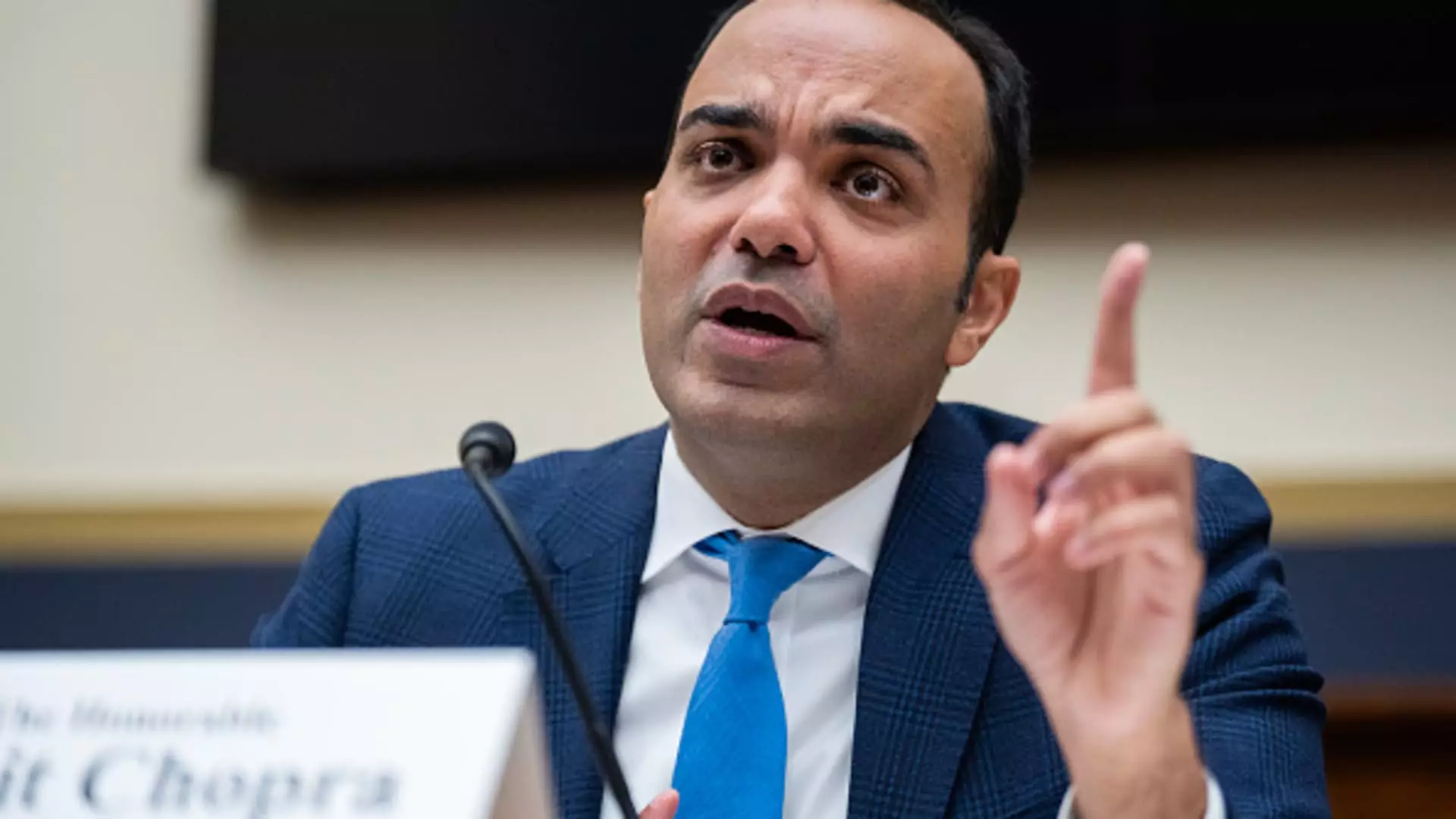Recently, the Consumer Financial Protection Bureau (CFPB) finalized a significant regulation aimed at curbing the exorbitant overdraft fees charged by banks. This landmark decision is expected to save American consumers approximately $5 billion each year, signaling an essential shift in the financial landscape. By critically analyzing this initiative, we can understand its implications for consumers, banks, and the overall banking industry, while also exploring the potential challenges ahead.
Overdraft fees have long been a point of contention between financial institutions and consumers. These fees, often averaging around $35 per transaction, have generated a staggering $280 billion in revenue for banks since the year 2000. Such amounts can significantly impact the financial well-being of individuals, particularly those living paycheck to paycheck. The reality for many consumers has been that these fees often arise from unintentional slips, further exacerbating financial struggles and leading to a cycle of debt.
CFPB Director Rohit Chopra articulated the significance of this new regulation, highlighting how banks have exploited loopholes that unfairly drained the resources of millions of Americans. With overdrawn accounts becoming a regular occurrence, the consequences extend beyond mere monetary loss; they directly affect the mental and emotional health of those consumers struggling to make ends meet.
The newly established rule allows banks to charge a maximum of $5 for overdrafts, a stark reduction from the typical fees encountered by consumers. Alternatively, banks have the option to charge fees that merely cover their operational costs or disclose all associated loan interest rates. This regulation stipulates that it applies to banks and credit unions with assets exceeding $10 billion. The overarching goal is to ensure transparency and fairness, holding financial institutions accountable.
Despite the potential advantages for consumers, the implementation date set for October 1, 2025, leaves uncertainty in its wake. The anticipated arrival of a new leadership under Donald Trump could potentially jeopardize the new rule’s future, especially given the traditional alignment of his administration with banking interests that may seek to resist such reforms.
The response from the banking community toward this rule has been predominantly negative. Groups such as the Consumer Bankers Association have expressed concerns that limiting overdraft fees may restrict access to essential banking services. There are fears that this regulation could inadvertently push consumers toward alternative borrowing avenues, such as payday loans, which often carry even more substantial financial risks.
This conflict highlights a titanic struggle between regulatory bodies advocating for consumer protection and financial institutions defending their sources of revenue. The refinancing of payday loans and similar products can trap consumers in cycles of increased debt and financial instability, a scenario lawmakers aim to prevent.
The CFPB’s action to regulate overdraft fees reflects a broader commitment to combat what has been termed “junk fees” imposed on consumers across various sectors. This initiative aligns with the Biden administration’s ongoing campaign to alleviate the financial burden on American households, especially in light of continuing economic challenges. However, the effectiveness of these reforms largely depends on continued advocacy and consumer awareness.
While the proposed regulations inspire hope for a fairer banking ecosystem, the ongoing battle between consumer rights and banking profitability will invariably shape the effectiveness of this rule. Industry pushback has historically proven formidable, as previous attempts to impose restrictions on credit card late fees faced legal hurdles even before taking effect.
The CFPB’s newly finalizing rule regarding overdraft fees represents a critical step toward reforming existing banking practices, with the potential to enhance financial fairness for millions of Americans. However, the ensuing fight between regulatory bodies and the banking sector will determine whether these changes can truly take root. As the future unfolds, consumers and advocates must remain vigilant in ensuring that the principles of transparency and accountability govern the practices of financial institutions. The dialogue surrounding overdraft fees encapsulates a larger narrative: the necessity for ongoing reform in the financial sector to empower consumers and promote a more equitable economy.

